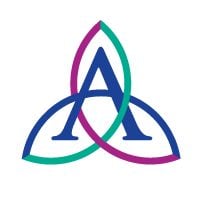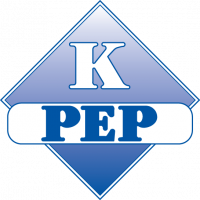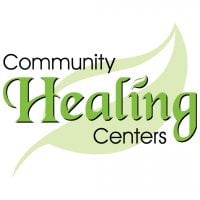Ascension Borgess Hospital Behavioral Health Adolescent Partial Hospitalization Program
Drug Rehab Center in Kalamazoo, Michigan
Ascension Borgess Hospital Behavioral Health Adolescent Partial Hospitalization Program in Kalamazoo, Michigan offers evidence-based therapeutic interventions and programs, as well as inpatient and long-term care, for adolescents with dual diagnoses, with a focus on personalized, integrated treatment plans and family support.
About Ascension Borgess Hospital Behavioral Health Adolescent Partial Hospitalization Program in Michigan
Ascension Borgess Hospital Behavioral Health Adolescent Partial Hospitalization Program is an inpatient and dual diagnosis treatment facility for adolescents in Kalamazoo, Michigan. The facility offers a range of evidence-based therapeutic interventions and programs, including Dialectical Behavioral Therapy (DBT), Couples Therapy, and Experiential Therapy, as well as nutritional and trauma therapies. The facility also offers inpatient treatment, residential long-term care exceeding 30 days, and cognitive behavioral treatment. Ascension Borgess Hospital Behavioral Health is dedicated to providing effective, personalized care to its adolescent clients, which often includes the support of their family members throughout the course of treatment. Additionally, the facility accepts private health insurance.
Through its multidisciplinary team of experts, Ascension Borgess Hospital Behavioral Health provides clients with comprehensive and individualized treatment plans designed to meet the individual's specific needs. Clients are offered an integrated approach to healing, which may include both individual, group, and family therapies, as well as evidence-based treatments such as Cognitive Behavioral Treatment and Nicotine Replacement Therapy, when deemed clinically appropriate. The facility also offers 24-hour medical care, ensuring that all clients receive the necessary medical care and attention. Ascension Borgess Hospital Behavioral Health understands that adolescent mental health can be a highly sensitive matter, and their team is dedicated to creating a safe and supportive environment for clients and their families.
Genders
Ages
Modality
Additional
Conditions and Issues Treated
Dual Diagnosis therapy is considered more successful than traditional rehab methods because it treats the addiction and the underlying mental health disorder simultaneously. This comprehensive approach gives Kalamazoo, MI patients the best chance for long-term recovery. If the patient does not receive treatment for both conditions, they are more likely to relapse.
Levels of Care Offered
This center offers a variety of custom treatment tailored to individual recovery. Currently available are Dual-Diagnosis, Inpatient, with additional therapies available as listed below.
Inpatient facilities offer a complete rehab program where the patient stays for an extended period. This allows the staff to monitor the patient on a round-the-clock basis and provide medical assistance if needed.
A significant benefit of inpatient rehab is that it allows for a safe environment for treatment. The patient doesn’t have access to drugs or alcohol, and they’re surrounded by people that want them to succeed and change their lives. Treatment starts with detox and behavioral therapy, followed by group therapy and family involvement.
Therapies & Programs
Individual Therapy is a crucial component of addiction recovery. Therapists work with patients to identify the root of their addiction and figure out how to better handle the issues that led to them using drugs. Individual Therapy is one on one sessions where people meet with their therapist. Individual therapy provides a safe space for people to open up and discuss personal and sensitive topics which they may not feel comfortable discussing in a group setting.
In this type of therapy, therapists can develop specific solutions for each patient, which helps speed up their recovery process. In addiction recovery, therapy is a crucial part. It allows patients to go deep into their core issues and discover how those problems can be better handled now. Therapy can be performed in individual sessions as well as group settings. In individual therapy for addiction, the patient meets with the therapist one-on-one to focus on the underlying issues of addiction and come up with solutions to prevent future abuse.
Addiction can take a heavy toll on relationships, damage the trust and intimacy that was once there. Couples therapy at Ascension Borgess Hospital Behavioral Health Adolescent Partial Hospitalization Program helps to rebuild the trust and intimacy that has been damaged. An intimate relationship with a drug addict is not healthy for children or anyone in the family. Therapist help to rebalance family roles and create a healthier environment after rehab in Kalamazoo, MI.
Family therapy is a crucial part of drug treatment and getting sober. It is one of the most effective ways to help addicts stay on the path to long-term sobriety. One of the most important parts of family therapy is the relapse prevention plan. During treatment, therapists and doctors will often sit down with the addict and their family to develop a plan if the addict ever feels like they want to use again. This plan should involve steps the addict and family can take together to prevent them from relapsing in the future.
An addict’s family can play a vital part in helping them to avoid relapse because they can spot the warning signs and help them get back on track before it becomes too much of a problem. Family therapy is one of the most effective ways to help addicts stay on the path to long-term sobriety.
Group Therapy is employed by drug treatment centers like Ascension Borgess Hospital Behavioral Health Adolescent Partial Hospitalization Program to provide the recovering addict with a platform to talk about their feelings and experiences. It also provides for an opportunity to learn from other addicts who have successfully overcome their addiction. It is recommended that all group members be recovering addicts for this type of therapy to work.
This type of therapy involves the use of a variety of therapeutic techniques to help addicts recover from past traumas that might have triggered their substance abuse. During these sessions, therapists will work with the addict to address painful memories and learn how to cope effectively with stressors as they arise.
During these types of sessions, therapists will typically focus on three main goals:
- Identifying and expressing painful emotions associated with past traumas.
- Reducing the effects of stress on an addict’s life by developing more effective coping mechanisms.
- Developing healthy ways of thinking about stressful situations that can help addicts avoid substance abuse issues in the future.
This type of therapy is typically used in conjunction with other types of addiction treatment services. By identifying and dealing with the root cause of addiction, most addicts can overcome their cravings and prevent relapse once they leave rehab.
Many different types of addiction treatment services exist to help addicts safely get sober, but it’s important for recovering individuals to find a therapist or support group that will help them address the root cause of their addiction.
Dialectical behavior therapy (DBT) is a type of cognitive behavioral therapy that is focused on helping those with problematic behaviors caused by intense emotions and thoughts control and regulate their emotions and behavior.
Dialectic Behavior Therapy is beneficial for:
- People who have chronic suicidal thoughts and behaviors
- People who have chronic drug cravings
- People who have difficulty establishing and maintaining personal relationships
- People who have a mental disorder such as Borderline Personality Disorder
- People who have experienced trauma in their life
Cognitive Behavioral Therapy (CBT) is an approach and method in psychotherapy. Ascension Borgess Hospital Behavioral Health Adolescent Partial Hospitalization Program asks people to investigate how their thoughts, including habitual, harmful, and inaccurate ways of thinking, affect behaviors. CBT is based on the idea that rigid, inflexible ways of thinking cause people to have a limited ability to cope with stress, which leads to emotional distress.
Likewise, CBT helps people identify maladaptive behaviors and replace them with more positive behaviors. It makes you look at the way you perceive something and ask: Is this a realistic belief? CBT asks people to look at the role of behaviors and emotional responses and how they may be distressing in one’s life. The goal of CBT is to change the way people think and behave to achieve a more balanced, healthier lifestyle.
Moreover, CBT has been shown to reduce some types of anxiety disorders, depression, and symptoms related to thoughts or actions that are considered harmful.
Good nutrition can be difficult for people recovering from addiction because they may not feel like eating while they are experiencing the physical and emotional side effects of detoxing.
Nutrition therapy can help addicts in Michigan in the following ways:
- Helps individuals to understand which foods promote good health and support recovery that will assist them during detox
- Provides guidance and education about how to maintain a nutritious diet so they can stay healthy during recovery
- Improves their overall health and well-being, which can reduce the severity of substance withdrawal symptoms.
Nicotine replacement therapy treats nicotine addiction using external sources of nicotine, such as patches or gum to substitute for nicotine. This allows people trying to quit smoking to get their desired dose of nicotine without actually having to smoke cigarettes. There are several different types of NRT devices on the market now, and it is important to talk to your doctor about the best kind for you.
Patient Experience
Experiential Therapy at Ascension Borgess Hospital Behavioral Health Adolescent Partial Hospitalization Program
Experiential therapy at Ascension Borgess Hospital Behavioral Health Adolescent Partial Hospitalization Program includes helping people work through emotional disorders by participating in events in real-time. It moves away from conventional talk therapy to discuss their concerns and emotions by making patients play roles or use props. It allows people to handle trauma and feelings healthily, reducing the need to resort to alcohol and substances in Kalamazoo, MI.
Payment Options Accepted
For specific insurance or payment methods please contact us.
Is your insurance accepted?
Ask an expert, call (888) 674-0062
Additional Details
Specifics, location, and helpful extra information.
Kalamazoo, Michigan 49048 Phone Number(269) 226-5165 Meta DetailsUpdated November 25, 2023
Staff Verified
Ascension Borgess Hospital Behavioral Health Adolescent Partial Hospitalization Program Patient Reviews
There are no reviews yet. Be the first one to write one.
Kalamazoo, Michigan Addiction Information
Michigan has the second-highest rate of drug and alcohol abuse in the nation. Heroin is linked to more than 50% of the state's hepatitis C cases. Marijuana is the drug most often associated with crimes in Michigan, followed by methamphetamines. Opioids alone are responsible for almost 20% of all drug overdose deaths in Michigan.
Kalamazoo, Michigan has a serious drug addiction and abuse problem. In 2016, there were 120 drug overdose deaths in Kalamazoo County - a rate of 18.6 per 100,000 people. The most commonly abused drugs are marijuana, heroin, and prescription opioids. Families are affected, with many children being left without parents due to addiction. In Kalamazoo, MI, there are a variety of treatment facilities that offer different types of care.
Treatment in Nearby Cities
- Manistique, MI (254.7 mi.)
- Redford, MI (115.8 mi.)
- Cheboygan, MI (237.2 mi.)
- Menominee, MI (219.1 mi.)
- Reed City, MI (108.4 mi.)
Centers near Ascension Borgess Hospital Behavioral Health Adolescent Partial Hospitalization Program
The facility name, logo and brand are the property and registered trademarks of Ascension Borgess Hospital Behavioral Health Adolescent Partial Hospitalization Program, and are being used for identification and informational purposes only. Use of these names, logos and brands shall not imply endorsement. RehabNow.org is not affiliated with or sponsored by Ascension Borgess Hospital Behavioral Health Adolescent Partial Hospitalization Program.







